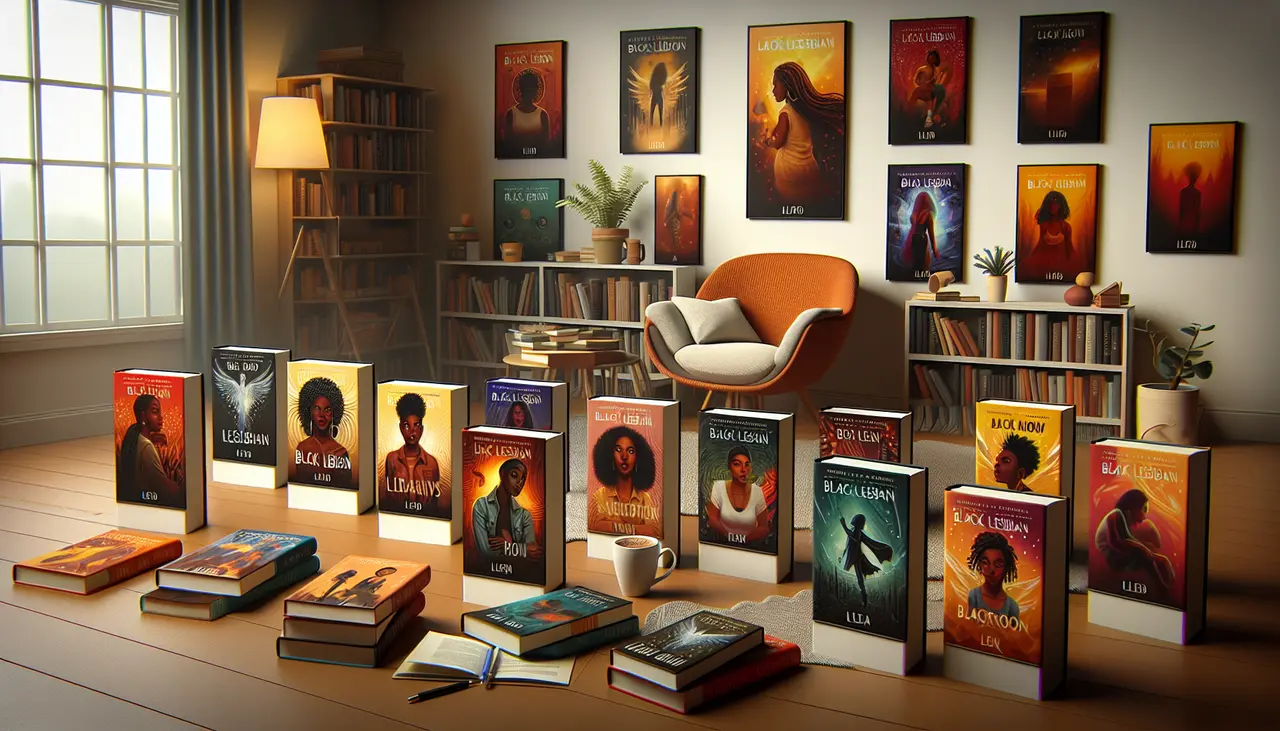Introduction to Diversity in Literature
Diversity in literature opens the door to different worlds, perspectives, and experiences. It’s about bringing to light stories and voices that have often been ignored or sidelined. When we talk about diversity, we’re talking about including all sorts of differences—race, gender, sexuality, and more. Black lesbian books entering the audiobook realm marks a significant stride in this direction. This is not just about adding numbers or titles to a catalog. It’s about shaking up the narrative space, making sure everyone’s story is heard. With technology and shifting societal attitudes, audiobooks have become a powerful medium to share these stories. They bring words to life, and now, more than ever, these voices are traveling through headphones and speakers across the globe, reaching audiences who might not have access to or interest in traditional reading formats. So when we explore diversity in literature, we’re exploring the richness of human experience and ensuring that no story is left untold.
The emergence of Black Lesbian Books
Black lesbian books have taken center stage, spotlighting unique stories through the lens of diversity and inclusion. These stories go beyond the usual narratives to showcase love, struggle, and resilience in the Black lesbian community. Initially limited in availability, these books have found a new, vibrant life in the form of audiobooks. This shift not only makes these powerful stories more accessible but also breathes emotion and depth into the narratives, elevating the experience. From tales that traverse the complexities of identity to romances that break barriers, Black lesbian audiobooks offer listeners a window into experiences often left untold. As more voices are heard, the catalog of these audiobooks grows, enriching the tapestry of literature with diverse and compelling stories. The rise of Black lesbian books in audiobooks marks a significant moment – it’s about representation, accessibility, and the powerful notion that everyone’s story deserves to be heard.
Black Lesbian Books in the Audiobook Format
Black lesbian books in audiobook format are changing the game. They let you dive into stories hands-free, whether you’re commuting, working out, or just relaxing at home. The range is vast, from powerful romances to gripping dramas, all telling stories from a unique perspective often left unheard in mainstream literature. Hearing these stories in the author’s or narrator’s voice adds depth and emotions, making the experience even more immersive. The rise of black lesbian audiobooks makes it easier for people to access stories that reflect their lives and experiences, breaking barriers and opening up the world of literature to a wider audience. Plus, with audiobooks, getting into a good book has never been more convenient, making it easier for everyone to explore new perspectives and stories.
Why Audiobooks are Shaping the Future of Reading
Audiobooks are changing how we enjoy stories. They’ve become a key player in making books accessible to more people, including those who might not have the time or preference for traditional reading. When it comes to Black lesbian literature, audiobooks are a game-changer. They bring stories to life, giving voice to characters and experiences that have been underrepresented in mainstream media. With the rise of smartphones and streaming services, audiobooks are easier to access than ever, allowing diverse voices to be heard in new and exciting ways. This means that stories from Black lesbian authors reach a wider audience, breaking barriers and fostering a deeper understanding of diverse experiences. Audiobooks aren’t just convenient; they’re a powerful tool for inclusivity and representation in literature.
The Importance of Representation in Literature
Seeing yourself in a story is powerful. It’s more than just reading or listening; it feels like being acknowledged, understood, or even celebrated. That’s why representation in literature matters so much. For the longest time, stories from diverse backgrounds, especially those of Black lesbians, were hard to come by. But as more Black lesbian books find their voices in audiobooks, we’re witnessing a shift. This representation matters for a bunch of reasons. First off, it breaks the mold, showing life from perspectives that mainstream tales rarely explore. It’s about telling everyone that their stories, their struggles, and their triumphs are worth sharing. Plus, for someone exploring their identity, coming across characters they can relate to can be a lighthouse in a stormy sea. And let’s not forget about empathy. When you walk a mile in someone else’s shoes, even if it’s just through your headphones, you understand their world a little better. Every story narrated, every life unfolded, and every insight shared brings us a step closer to a world where no voice is left unheard. So, the rise of Black lesbian books in audiobooks isn’t just a trend; it’s a powerful stride towards inclusivity and understanding.
Key Authors and Voices in Black Lesbian Literature
Key authors and voices in Black lesbian literature have been shaping the landscape and opening up conversations about diversity, representation, and the lived experiences of Black lesbian individuals. Notable authors include Audre Lorde, a pioneer whose works explore the intersection of race, sexuality, and poetry. Lorde’s “Zami: A New Spelling of My Name” is often hailed as a groundbreaking autobiography that delves into her identity and experiences. Another influential voice is Alice Walker, celebrated for her novel “The Color Purple,” which won the Pulitzer Prize. This novel, while exploring complex themes of race, sexism, and sexuality, highlights the resilience and empowerment of its characters. Octavia Butler, although primarily known for her science fiction, also contributed significantly with themes of identity and social critique that resonate within the LGBT community. Jacqueline Woodson, another key figure, offers narratives that often focus on youth, providing insight and visibility into racial and sexual identity formation. Her book “The House You Pass On the Way” beautifully portrays the nuances of discovering one’s sexual identity. These authors and their works have been instrumental in broadening the scope of literature to include diverse voices, making Black lesbian literature a vital part of the conversation on diversity in audiobooks and beyond. Their stories not only offer representation but also challenge readers to think deeply about the society we live in.
How to Discover and Access Black Lesbian Audiobooks
Finding black lesbian audiobooks might seem like a hunt, but it’s simpler than you think. Start by checking out platforms like Audible, Scribd, and Google Play Books. These sites have wide collections and offer easy searches. Just type “black lesbian audiobooks” in their search bars, and you’ll see a range of options pop up. Libraries are also a goldmine. Many public libraries use apps like OverDrive or Libby, where you can borrow audiobooks for free. Just get a library card, and you’re set. Don’t forget to explore indie publishers and authors’ websites. They often have audiobooks that mainstream platforms might not carry. Plus, supporting indie means directly supporting writers’ and narrators’ work. Happy listening!
The Impact of Black Lesbian Books on the LGBTQ+ Community
Black lesbian books in audiobook format have done wonders for the LGBTQ+ community. They serve as mirrors and windows. Mirrors, because they reflect the lives and experiences of black lesbian individuals, showing that they are not alone. Windows, because they offer others insight into lives different from their own, promoting empathy and understanding. This growth in representation helps in normalizing LGBTQ+ identities and relationships, slowly dismantling long-standing stigmas. It’s more than just stories; it’s about visibility and validation. By listening to these narratives, individuals within and outside the community can find pieces of themselves or learn about the diverse experiences within the human tapestry. It underlines the importance of diversity in literature, proving that everyone’s story deserves to be heard.
Challenges and Achievements in Promoting Black Lesbian Audiobooks
Getting Black lesbian audiobooks out there hasn’t been a walk in the park. First up, visibility’s thin on the ground. These stories often fly under the radar, ignored by mainstream channels. It’s tough for authors to get the spotlight when big publishers often stick to what they think will sell best, leaving diverse voices on the outside looking in. Then there’s the challenge of stereotypes. Yep, the stereotypes that paint Black lesbian lives in broad, inaccurate strokes, making it hard for real, nuanced stories to get the attention they deserve. But, it’s not all doom and gloom. The achievements are worth shouting about. Independent publishing is a game changer, giving authors the reins to tell their stories, their way. Social media and online communities have turned into powerful tools too, helping these books find a crowd that’s hungry for stories that reflect their lives and experiences. Audiobook platforms are slowly but surely starting to catch up, recognizing the demand for diverse voices. It goes to show, with a bit of grit and a lot of passion, barriers start to crumble. Black lesbian audiobooks are carving out a space of their own, showing that these stories are not just important but necessary.
Conclusion: The Ongoing Journey for Diversity in Literature
The journey for diversity in literature is ongoing and vibrant. Black lesbian books in audiobooks mark a significant milestone in this adventure. They offer a window into lives that may not be widely represented in mainstream media, providing both mirrors and windows for readers and listeners alike. Mirrors, in which individuals see reflections of their own experiences, struggles, and triumphs; and windows, through which we learn about, understand, and empathize with the experiences of others. Ensuring these stories are heard is about pushing boundaries, challenging norms, and embracing a richness of voices that have long been silenced or sidelined. As more authors from diverse backgrounds write their truths, and more audiobooks bring these stories to life, the fabric of literature becomes more inclusive, more interesting, and more real. The rise of black lesbian books in audiobooks isn’t just a trend; it’s a testament to the power of storytelling in all its forms. This movement paves the way for future generations to see themselves in all aspects of literature, inspiring a world where every voice has the chance to be heard. So, let’s keep listening, supporting, and advocating for diversity in literature. The journey is far from over, but together, we’re writing a more inclusive chapter for tomorrow.


